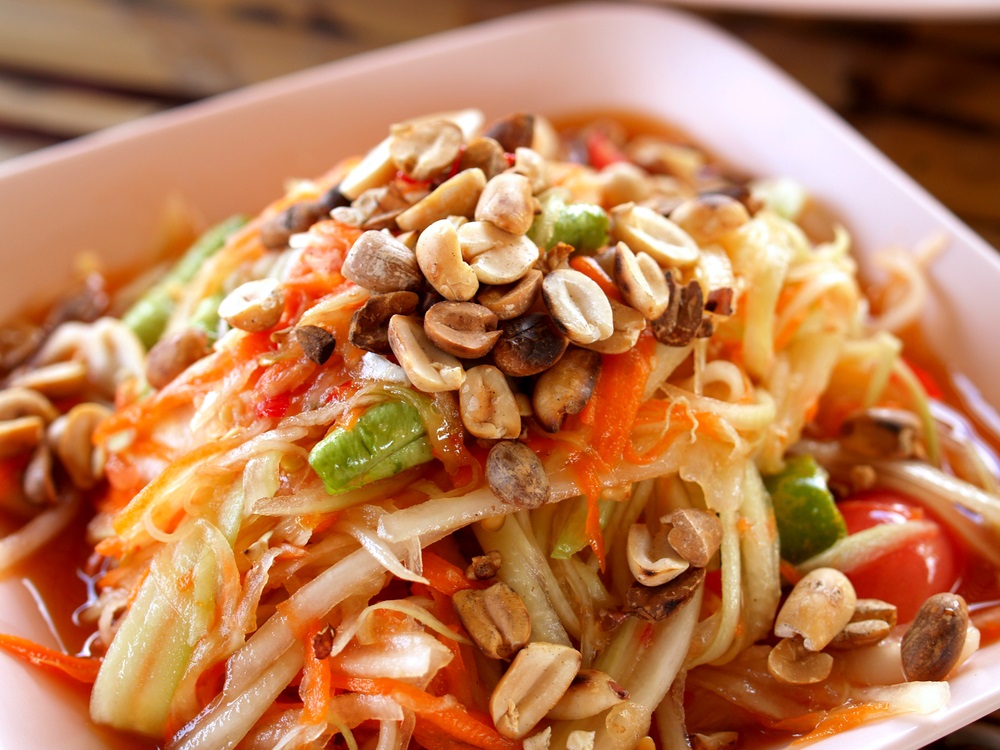- Home
- Blog
- Carbs, Sugars and Fibres
- Sugar and how much to eat
Sugar and how much to eat
Written by Catherine Saxelby on Wednesday, 12 October 2022.

People often tell me how confused they are about sugar. So here’s my take, which I hope will make healthy eating that much easier for you.
I recently interviewed Yvonne Webb about a book she’s written, entitled For Goodness’ Sake, Let’s Talk Sugar.
Yvonne wishes to be known as an author, because it’s about what she writes, not who she is. She is a dietitian, nutritionist, author and physiologist, which is not surprising given her expertise in this subject matter.
Her book is all about sugar, its role in nutrition and the important part it plays in our everyday lives.
The book also covers diabetes, including the best way for people to balance their blood glucose. It does not demonise any food, including sugar; however, classifying a food as ‘good’ does not mean we have permission for unlimited intake!
Let’s Talk Sugar is a refreshing guide to sugar that enlightens and surprises. It is scientifically backed and debunks myths around sugar in nutrition—for instance, that Calories, kilojoules and energy mean the same thing. If a food is low in Calories, it has to be low in energy, and vice versa. They cannot mean different things in different places. The energy in food and the energy we store or use are both measured in kilojoules (kJ) or Calories (Cals).
The book discusses food behaviours around food intake and weight control. It describes the importance of sugars and other carbohydrates in the diet, as well as their central role in controlling and maintaining your equilibrium as an individual and with the Earth.
In her book, Webb states:
'Whether we eat carbohydrate, fat or protein, if we eat more than our energy needs, the excess energy will be converted into fat and stored. This is contrary to what the Keto Diet marketers assert! They claim that somehow if we eat fat rather than carbohydrate we will “burn fat”.'
I asked Yvonne, what is the suggested amount of sugar to consume each day? It’s up to the body to decide, she answered, because of digestion and the liver. Will the sugar be put aside for future storage? Or will it be used for energy now?
You can tell your brain you’ve finished eating by allowing yourself the luxury of having a morsel of something sweet. But not a whole plate of sticky date pudding. That’s a meal in itself!

What a sugar-free diet really means
According to Yvonne, this diet doesn’t really have any meaning because any starches are converted into sugars (glucose, fructose) in the body. People often add a little sugar to balance out the flavour when cooking, for instance, in Thai cuisine. And in winter, fruit juice contains more added sugar than in summer when the sugars are naturally higher. So, saying you have a sugar-free diet doesn’t make much sense. It isn’t that simple.
Intense sweeteners
Yvonne's book goes into detail about the 10 intense sweeteners that are approved for use in Australia. They are widely used in processed foods, including baked goods, soft drinks, various powered milk mixes, jams and jellies, as well as many other foods and beverages. This group includes sucralose, saccharin, aspartame, Nutrasweet™, and sugar alcohols such as sorbitol and xylitol. The product from the stevia plant also falls into this category.
Choosing a sugar substitute can be very confusing. Some manufacturers call their product ‘natural’ or ‘made from natural products’, even though they may be either refined or highly processed.
Examples of sugar alcohols are sorbitol, mannitol, xylitol, and glycerol and hydrogenated starch hydrolysates. Some people promote xylitol for making jam, but it has limitations. Sorbitol is absorbed from the gut more slowly than sugar; hence, it is sometimes recommended for people with diabetes, who are one of the largest groups targeted by the marketing of such products. Says Webb: “However, I would not recommend them for this group."
Yvonne maintains that using non-nutritive sweeteners doesn’t tackle a basic problem: having an excessive intake of sweet foods at the expense of other taste modalities. If used wisely, non-nutritive sweeteners may help with weight loss: But it depends on what else you are eating!
These sweeteners contribute no volume in baked goods, so when substituting sugar in a home recipe, you need to add more fat and flour! This, alas, means more kilojoules and negates the reason why you are using the product in the first place.
So, the jury is still out on how these non-nutritive sweeteners act and their overall safety. Some evidence has now emerged that, although intense sweeteners may be safe from a chemical viewpoint, they may influence how we metabolise natural sugars.

Good nutrition
Yvonne’s recommendations for good health and nutrition are based on managing your food intake and exercise. It doesn’t make anyone much money, but it costs you less. If you’re saving about $10 per week on your food shop, you’re on the right track. Buy less of every food (something I’ve been saying all along), buy smaller packets and cook less for each meal. Also, tomorrow, take a tablespoon of food off your plate.
The bottom line
If you’re serious about sugar, then you’ve got to read this book. It’s amazing. It will help you understand that sugar is not the demon it’s made out to be. While the term “added sugar” may sometimes be a negative, it can also be a positive and indicates flavour enhancement. Don’t automatically reject a product because it has sugar added. Webb insists:
'Don’t count kilojoules (or Calories) or precisely measure your ingredients, except in cakes and other baked goods. Just look at the size. For example, you can’t know precisely how many kilojoules your body will extract from a baked potato, because it will depend on the variety, how it was cooked, the content of resulting resistant starch, and what else was in that meal. So please, no measuring weight or kilojoules to two decimal places. That is nonsense!'
Buy the book at https://www.booktopia.com.au
The Good Stuff
The Boring Stuff
© 2023 Foodwatch Australia. All rights reserved
Author photo by Kate Williams
Website by Joomstore eCommerce







